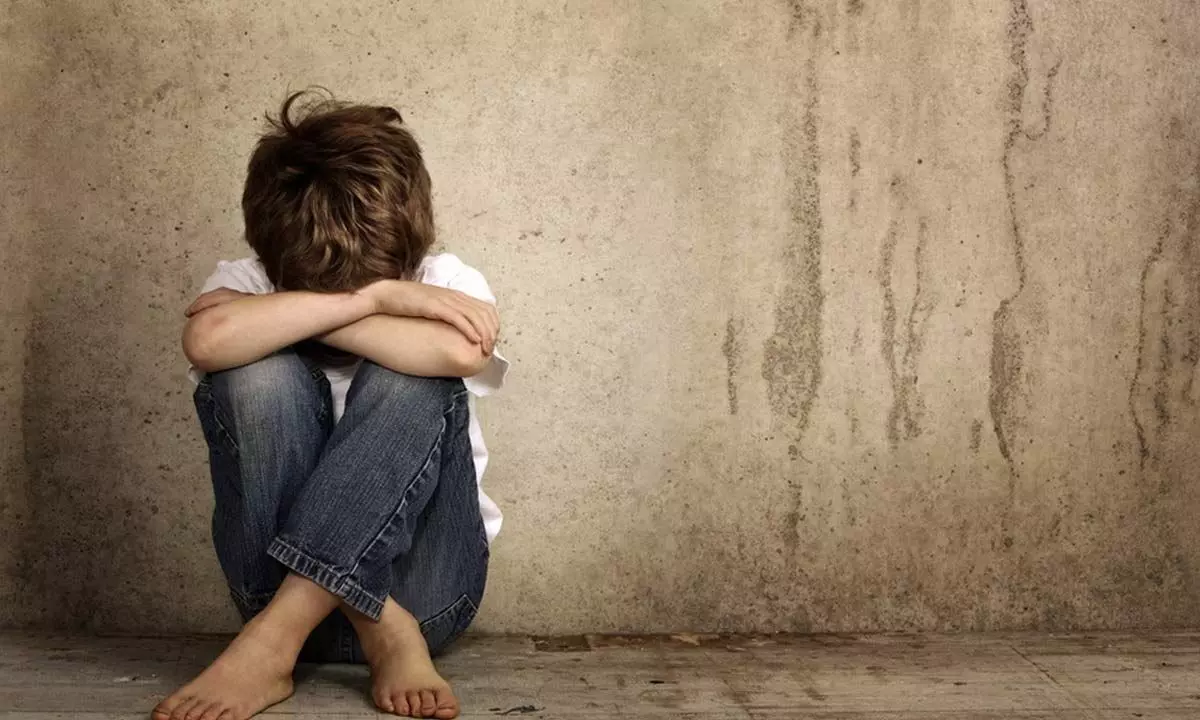Live
- Industrial production at 6-mth high in Nov
- Traffic restrictions on heavy vehicles in Rachakonda
- BoB signs MoU with Singareni
- Phone-tapping case: HC extends protection to Harish from arrest until Jan 28
- Global uncertainty hits mkt sentiment
- SCB inaugurates test tax assessment module
- 300 jobs created with ARIQT innovation hub: Sridhar Babu
- CCMB show wows wannabe scientists
- Transport dept slaps 150 cases on pvt bus operators in State
- Cuffs on 23 for cyber frauds across country
Just In
Harsh discipline may cause mental health problems in kids


Harsh discipline may cause mental health problems in kids
Do you often shout at your kids or isolate them when they misbehave? If so, your kids are more likely at risk of developing lasting mental health problems, according to a new study.
Do you often shout at your kids or isolate them when they misbehave? If so, your kids are more likely at risk of developing lasting mental health problems, according to a new study.
The study of over 7,500 Irish children, reported in the journal Epidemiology and Psychiatric Sciences, showed that children exposed to 'hostile' parenting at age three were 1.5 times likelier than their peers to have mental health symptoms which qualified as 'high risk' by age nine.
"The fact that one in 10 children were in the high-risk category for mental health problems is a concern and we ought to be aware of the part parenting may play in that," said Ioannis Katsantonis, a doctoral researcher at the Faculty of Education at University of Cambridge in the UK.
"We are not for a moment suggesting that parents should not set firm boundaries for their children's behaviour, but it is difficult to justify frequent harsh discipline, given the implications for mental health."
Importantly, the study also makes clear that parenting style does not completely determine mental health outcomes. Children's mental health is shaped by multiple risk factors, including gender, physical health, and socio-economic status.
"Avoiding a hostile emotional climate at home won't necessarily prevent poor mental health outcomes from occurring, but it will probably help," Jennifer Symonds, Associate Professor in the School of Education at University College Dublin in Ireland.
For the study, the team charted the children's mental health symptoms at ages three, five, and nine. They studied both internalising mental health symptoms (such as anxiety and social withdrawal) and externalising symptoms (such as impulsive and aggressive behaviour, and hyperactivity).
About 10 per cent of the children were found to be in a high-risk band for poor mental health. Children who experienced hostile parenting were much more likely to fall into this group, the researchers said.
The researchers said that mental health professionals, teachers and other practitioners should be alert to the potential influence of parenting on a child who shows signs of having poor mental health. They add that extra support for the parents of children who are already considered to be at risk could help to prevent these problems from developing.
Katsantonis said that the findings underscored the importance of early intervention and support for children who are at risk of mental health difficulties, and that this should involve tailored support, guidance and training for new parents.

© 2025 Hyderabad Media House Limited/The Hans India. All rights reserved. Powered by hocalwire.com






